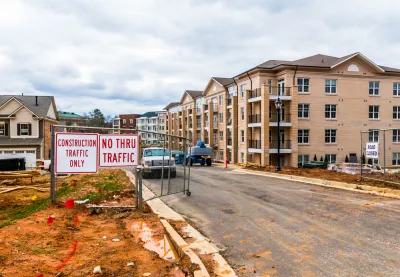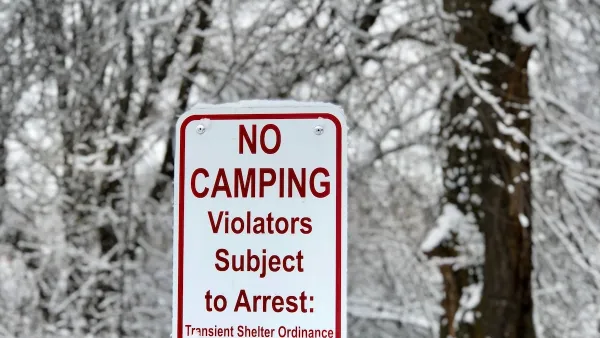Despite the powerful impact of local land use and zoning policies on housing costs and supply, many U.S. mayors believe they have little control over homelessness in their cities.

“According to a report released in December by the U.S. Department of Housing and Urban Development (HUD), nearly 600,000 Americans were homeless at this time last year,” writes Carl Smith for Governing. But according to the 2021 Menino Survey of Mayors, “only 1 in 5 mayors felt they had more than ‘moderate’ control over homelessness in their cities,” and almost seven out of 10 did not see zoning as a significant barrier to reducing homelessness.
As Smith points out, “Improving social services won’t be enough if housing is in short supply, or too expensive,” but only 30 percent of homelessness plans from the nation’s 100 largest cities mention zoning and land use. Yet “It’s important to recognize that one of the basic reasons people don’t have housing is because the housing is not being built in the first place, says architect and attorney Sara Bronin.”
Bronin points out that “Although restrictions on housing density have a well-recognized impact on housing development, code requirements regarding such things as lot size, parking spaces, building height or public hearings can also present barriers.”
Resource-strapped mayors can now look to federal “Yes In My Backyard” grants from the Department of Housing and Urban Development (HUD) to advance zoning reform. The grant program was allocated $85 million in the 2022 omnibus spending bill.
FULL STORY: Few Mayors Connect the Dots Between Zoning and Homelessness

Analysis: Cybertruck Fatality Rate Far Exceeds That of Ford Pinto
The Tesla Cybertruck was recalled seven times last year.

National Parks Layoffs Will Cause Communities to Lose Billions
Thousands of essential park workers were laid off this week, just before the busy spring break season.

Retro-silient?: America’s First “Eco-burb,” The Woodlands Turns 50
A master-planned community north of Houston offers lessons on green infrastructure and resilient design, but falls short of its founder’s lofty affordability and walkability goals.

Test News Post 1
This is a summary

Analysis: Cybertruck Fatality Rate Far Exceeds That of Ford Pinto
The Tesla Cybertruck was recalled seven times last year.

Test News Headline 46
Test for the image on the front page.
Urban Design for Planners 1: Software Tools
This six-course series explores essential urban design concepts using open source software and equips planners with the tools they need to participate fully in the urban design process.
Planning for Universal Design
Learn the tools for implementing Universal Design in planning regulations.
EMC Planning Group, Inc.
Planetizen
Planetizen
Mpact (formerly Rail~Volution)
Great Falls Development Authority, Inc.
HUDs Office of Policy Development and Research
NYU Wagner Graduate School of Public Service




























